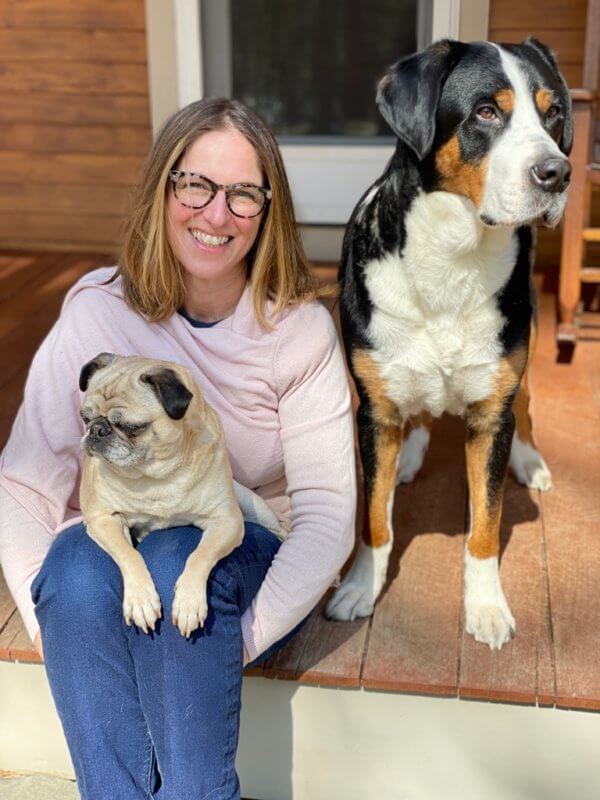Jessica Lahey: Parenting from a teacher’s perspective
Jessica Lahey was a teacher for two decades, but writing was her first love. Now, The New York Times bestselling author has the best of both worlds, as a writer whose work is geared toward those who teach children.
“I’ve written since I was little,” Lahey said. “I was editor-in-chief of my school newspaper, and my first publication was in the student edition of The Boston Globe.”

Her husband, Tim, suggested she write about teaching since that was her passion.
“I told him nobody wanted to read about teaching,” she recalls, “but I began blogging about what I did in the classroom.”
After a few years, Lahey’s blog was noticed by someone who managed the Core Knowledge Foundation blog for people in education policy and she was asked to write for the foundation. Lahey initially demurred because she wasn’t a policy expert, but eventually she agreed to do it.
Her breakthrough came in 2013 when she wrote about an Australian study on the impact of overparenting. Deciding it was more than just a blog post, she submitted it to The Atlantic magazine on a Monday.
“They accepted it on Tuesday,” she said, “and by Friday I was doing national media in New York.”
Lahey’s experience in the classroom includes grades six through 12 in both public and private schools, but her heart is in middle school. She planned for her 2015 book, “The Gift of Failure: How the Best Parents Learn to Let Go so Their Kids Can Succeed,” to center it around middle school students, but her editor convinced her to include all ages.
“While the book covers all grades, I think the spirit is really centered in middle school,” Lahey said.
Lahey’s family has a history of alcoholism. After getting a publisher for “The Gift of Failure,” she knew she wouldn’t be able to work full time and write if she continued drinking.
“I got sober on June 7, 2013,” she said.
Her experience with substance abuse helped inform her second book, “The Addiction Inoculation: Raising Healthy Kids in a Culture of Dependence.” Lahey had been teaching at Valley Vista, an addiction treatment facility in Bradford and wanted to explore what could be done differently for the kids in rehab and help keep them out of rehab in the first place.
In the book, Lahey discusses the inoculation theory, which comes from sociology.
“I needed to know what the experts meant when they said, ‘Substance use disorder is preventable,’” she said.
Lahey describes ways to help kids feel comfortable refuting certain canards like “everyone does drugs” or “it’s no big deal.” She added that those skills can also help kids avoid pitfalls like having sex before they are ready or getting into a car with a drunk driver.
Lahey has written a number of articles for The Atlantic and for several years she wrote a semi-weekly column in The New York Times called “Parent-Teacher Conference.” Of late, she has been a contributor to The Washington Post. After being interviewed on Vermont Public Radio, she became one of their regular commentators. That experience helped her gain enough confidence in her vocal skills to be the voice behind the audio version of “The Gift of Failure.”
“The book was written in my teacher voice,” Lahey said, “so it was important for me to do it.”
Lahey is currently working on two different projects. She had almost completed an 80-page proposal, market analysis and sample chapters for one book when she began to visualize a second one and is currently working with her agent to decide how to prioritize her time.
In between writing, Lahey has begun learning other skills, she said. “We moved here two and a half years ago, and there are a number of changes we wanted to make to the house. I just gutted and refinished a bathroom by myself.”
After reading a book called “The Standards-Based Classroom,” which was written partially by people involved with Champlain Valley Union High School, Lahey and her husband decided to confine their house search to towns in this area.
“What’s been really rewarding about coming to Charlotte is that it’s been a really cool place to go through the pandemic,” she said. “People really care about each other here.”

